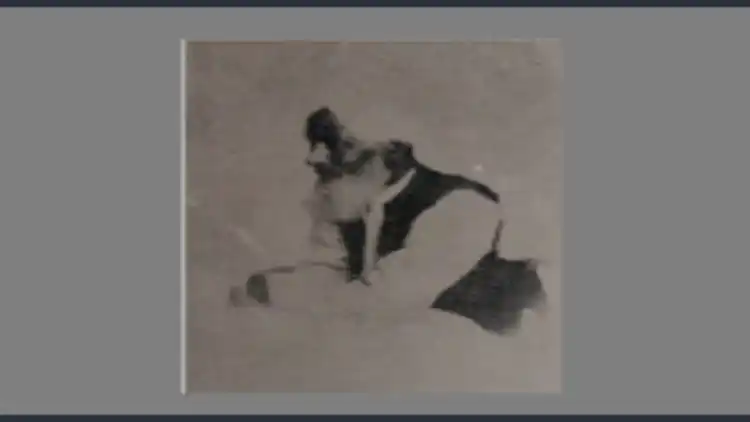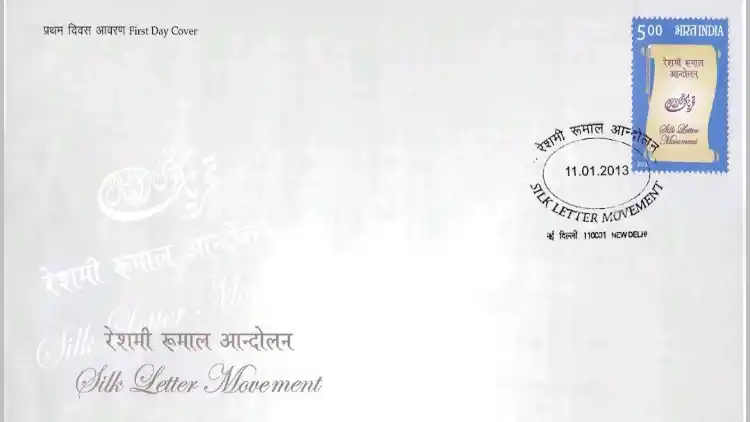
.webp) Saquib Salim
Saquib Salim
In the pre-independence era, the colonial rulers and their apologists spread a deliberate lie that the traditional Islamic scholars in India were not, or less, patriotic than the people of other religious faiths. The motive was to create mistrust among different religious groups and weaken the independence movement. Sadly, the propaganda still holds on after independence. Many people believe that the Muslim scholars, or Ulama, kept themselves away from the independence movement. It is propaganda by those who never wanted to see India free.
I have been reading the colonial documents, court cases, CID files, correspondences of the British, and newspaper reports for years now. There is not an iota of doubt that the Ulama played an important role in the freedom struggle. Rather, it would not be an exaggeration to say that the British considered these Islamic scholars the most dangerous. Ulama, who had a considerable following among Muslims, were anti-British and promoted Hindu-Muslim unity. The British government never felt threatened by the English educated Muslims.
Maulana Abul Kalam Azad, the first Education Minister of free India, believed that a Madarsa educated person did not contend for a government job like an English educated, therefore, such a person could be more anti-British as he did not be needing a favour from them in the future.
In 1918, the British formed a Sedition Committee under Justice Rowlatt. Its report was the basis of the infamous Rowlatt Act. The Jallainwala massacre happened while people were agitating against the act. Ulema, according to the report, was one of the most threatening groups of people for the British empire. The Rowlatt committee was specifically worried about a movement known as the Silk Letter Movement.
In August 1916, the British officials in Multan got hold of three letters written on yellow silk cloths. The letters were written by Maulana Ubaidullah Sindhi to Abdur Rahim and Maulana Mahmood Hasan. The letters disclosed to the British a larger plan to overthrow the British government in India. Ulama led by Maulana Mahmood had planned an armed attack on British controlled India with the help of people from the tribal belts in Afghanistan, the Afghanistan government, Russia, Germany, Turkey and other countries opposed to Britain during the First World War (1914-1918). Ulama were collaborating with Ghadar Party and Arya Samajis in this endeavour.
The confiscated letters revealed the extent of the plan. Many countries had promised their support to the armed freedom struggle in India whenever Ulama attacked the British forces from the Afghan frontier. CID, in its investigation, connected the movement to different Muslim-led movements of the last 50 years. In the court, 59 Indian nationalists were charged for ‘waging the war against the crown.’
In 1909, Maulana Mahmood Hasan initiated the formation of Jamiat-ul-Ansar, an association of Old Boys of Darul Uloom. Ubaidullah was made its head. The association started spreading anti-British and nationalist ideas among Ulama. The effect was that many of the teachers and students, at Deoband, started boycotting foreign goods. Maulana Mahmood established a madrasa, Nizaratul Maarif, in Delhi and sent Ubaidullah to head it in 1912. This madrasa acted as a bridge between Ulama and the English educated youth.
Several students from Aligarh college started joining the madrasa. The madrasa helped in uniting Ulama and the mainstream nationalist leadership of Congress. M.A Ansari, Hakim Ajmal Khan and others were drawn towards the movement. The madrasa also published two books; ‘Talim-e-Quran’ and ‘Kaleed-e-Quran’, which according to the British incited Muslim youth against the colonial government.
Somewhere else in Kolkata, Maulana Abul Kalam Azad, in consultation with Maulana Mahmood, established Jamiat Hizbullah, a militant organization to wage war against the British. Often considered a non-violent Gandhian leader, Azad’s militant organization had more than 1700 members who had pledged to sacrifice their lives for the cause. To popularize ideas of armed war against the British a newspaper, Al-Hilal, and a madrasa, Darul Irshad was also established by Azad in Kolkata. The newspaper was banned, notes from the madrasa were confiscated, and Azad was arrested.
Maulana Mahmood and many others thought that avoiding arrest was important to fight the British. In 1915, Maulvi Saifur Rahman, on his advice, led several Punjabi Muslims to cross over the frontier to Afghanistan. The objective was to persuade the tribes there to wage a war against the British in India.
Ubaidullah was directed to go to Kabul to cajole Amir Habibullah, ruler of Afghanistan, to join the war. Maulana Mahmood himself left for Hejaz, present Saudi Arab, to garner the support of the Turkish governor of Hejaz.
In Kabul, Raja Mahendra and Maulana Barkatullah reached from Germany to impress upon Amir Habibullah into joining Turkey and Germany in the World War. A provisional government was formed. Raja was appointed the president, Barkatullah was the PM and Ubaidullah became its India Affairs Minister.
 A postal Stamp issued to commemorate the Silk Letter movement
A postal Stamp issued to commemorate the Silk Letter movement
An army, Junood-e-Rabbaniyah, was also proposed, whose Generals were Maulana Mahmood and Ubaidullah. Maulana Abul Kalam Azad, Dr. M.A Ansari, Maulana Abdul Bari (Firangi Mahali), Hasrat Mohani, Muhammad Ali, and Zafar Ali Khan were a few of several officers designated in the proposed army. This government sent several missions to countries like Russia, Turkey, Japan etc.
Mathura Singh, a representative of the the government on these missions was arrested in Russia and later hanged to death in Lahore in 1917 for his patriotic work.
Also Read: Why the British were scared of Maulana Ubaidullah Sindhi?
In Makkah and Medina, Maulana Mahmood met Ghalib Pasha, the Turkish governor of Hejaz, and won his support for a revolt in India. A pamphlet, Ghalibnama, from Ghalib was sent to India promising his armed support to an armed revolt. Anwar Pasha and Jamal Pasha also met Maulana Mahmood and Husain Ahmad Madni in Median. They also promised their support.
However, soon Turkey faced reverses in the war and lost Hejaz to the allied forces. Maulana Mahmood and Husain Ahmad were arrested. They were sent to Malta as prisoners of war and released three years later. Maulana Mahmood received a hero’s welcome on reaching Mumbai, in 1920, as Mahatma Gandhi along with many leaders reached to receive him.
Though the movement failed in its immediate objective, the ideals it spread kept the fire of revolt burning in Indian hearts. Later on, during the Second World War, Indians again formed a Provisional Government, Azad Hind Sarkar, and an army, Azad Hind Fauj, under the leadership of Netaji Subhas Chandra Bose.
Saquib Salim is a historian and a writer
